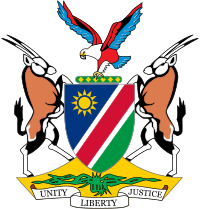Export Processing Zone (EPZ)
BACKGROUND 
The Government of the Republic of Namibia adopted a policy for the establishment of an Export Processing Zone (EPZ) regime to serve as a tax haven for export-oriented manufacturing enterprises in the country, in exchange for technology transfer, capital inflow, skills development and job creation. This policy decision was translated into law through the passage in Parliament of the Export Processing Zone Act (Act No. 9 of 1995). The implementation of this initiative started in 1996.
As a policy instrument, the EPZ regime is designed to:
- Facilitate imports of foreign productive capital and technology as well as the transfer of technical and industrial skills to the local workforce;
- Contribute towards an increased share contribution of the manufacturing (industrial) sector to job creation, the country's gross domestic product (GDP) and exports of manufactured goods; and
- Enhance the diversification of the local economy.
KEY FEATURES OF NAMIBIA'S EPZ REGIME
Namibia's EPZ regime offers export-oriented manufacturers a range of internationally competitive advantages.
Tax-free regime
EPZ enterprises are exempted from corporate income tax, duties and value-added tax (VAT) on machinery, equipment and raw materials imported into Namibia for manufacturing purposes. The only taxes payable are personal income tax on employees' income as well as the 10% withholding tax (non-resident shareholders) on declared dividends. In addition, EPZ enterprises are allowed to hold foreign currency accounts at commercial banks as well as to repatriate their capital and profits.
No time-bound incentives
The incentives referred to above are for an indefinite period or apply for the life time of the approved project in Namibia.
Equal treatment of investors
Local and foreign investors who meet the conditions for admission under the EPZ enjoy equal treatment and eligibility to the applicable EPZ incentives.
Freedom of location
EPZ enterprises are free to establish themselves anywhere in the country. An EPZ enterprise can set up as a single factory enterprise at any clearly demarcated location of choice. Where an industrial zone or park has been developed, interested investors may choose to locate in such industrial zone or park to take advantage of the affordable factory shells or warehouses that have been constructed and are on lease by the ODC or the Walvis Bay EPZ Management Company if the harbour town of Walvis Bay is the preferred location.
Business and Industrial infrastructure
The ODC develops and leases serviced industrial and business sites and factory shells. Four multi-purpose industrial parks have been developed at various locations in the country. A Park has been developed at Oshikango, Helao-Nafidi Town near the Angola-Namibia northern borders purposely to support and boost cross-border trade with neighbouring Angola. The other industrial and business Parks are in Windhoek, the capital city; Ondangwa in the northern part of the country; and Katima Mulilo near the north-eastern borders with Zambia, Zimbabwe and Botswana. A new industrial park development is underway at the border settlement of Katwitwi in the Kavango Region on the Angola-Namibia border.
Responsible authority:
Chief Executive Officer, Offshore Development Company
Private Bag 13379
Windhoek, Namibia
Tel: +264-61-283-7360, Fax: +264-61-231001
E-mail: odc@mti.gov.na
